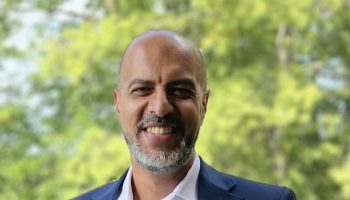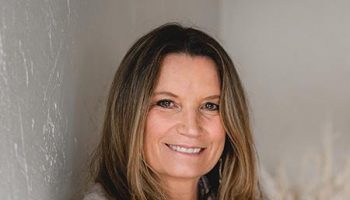Kaitlyn Finchler
Contributing Writer

While a nation may not appear religious politically or socially to those who aren’t from there, religious divides happen across the globe.
Susan Hayward, specialist on religion, peace and human rights at Georgetown University’s Berkley Center for Religion, Peace and World Affairs, will deliver her lecture “Buddhist Extremisms in Myanmar” at 2 p.m. today in the Hall of Philosophy for the Week Six Interfaith Lecture Series theme “Religion’s Role in Conflict and Extremism.”
“I’m going to speak a little bit about the role of Buddhism in Myanmar and its complex and sometimes contradictory role in driving both authoritarianism and democracy movements, violence and peace movements,” Hayward said.
Reflecting on the last 10 to 15 years, Hayward said Myanmar has gone through a period of several political transitions, and Buddhist actors have responded in ways that have supported the democracy movement and a “pluralist national vision,” “sometimes in ways that have driven violence against Muslim communities, ethnic minority communities and show support for the military and its authoritarian rule,” she said.
The religious dimensions of conflict and peace are “inevitably present” in conflicts around the world, Hayward said.
“Not necessarily as a root driver, but as a driver that does shape the political and economic drivers of conflict,” Hayward said. “Especially at a time when authoritarianism is rising worldwide, it’s incredibly important to understand those religious dimensions and to address them alongside other political and economic drivers.”
In her lecture, Hayward said she plans to speak on both Buddhist monks and nuns who have been involved in supporting both authoritarianism and democracy.
“In the West, we tend to have a romantic vision of Buddhism as rational modern religion that is less likely to be involved in or co-opted in support of violent or authoritarian movements,” she said. “But the reality on the ground and the reality, historically, is that Buddhist actors are human, and they have themselves been caught up in violent movements, historically, and in the contemporary moment and bring some of their Buddhist values and teachings to legitimate those actions.”
Hayward’s work focuses on Myanmar, Sri Lanka and Colombia, and she said there are key similarities and differences.
“In Colombia, for example, the conflicts of the past haven’t had an extraordinary religious dimension,” Hayward said. “You don’t generally think of the conflicts in Colombia as being religious conflicts. And yet, the church is incredibly influential there and has played a role in past peace processes.”
On the other hand, in places like Myanmar and Sri Lanka, Hayward said religious dimensions “might be a bit more obvious” because the conflict divide is across religious divides.
“In all places, including the U.S. where we also have religious dynamics that are driving forms of political conflict and political violence, … we need to do what’s called ‘right-sizing religion,’ ” she said. “To understand those religious dimensions and their entanglements alongside political and economic drivers and not overemphasize the religious dimensions nor underemphasize them.”
Hayward said she hopes her lecture invites people to look at some of their assumptions about Buddhism, and religion as a whole, and religion’s relationship “more broadly” to violence and peace.
“I’m going to invite people to think a little bit about the associations we have with extremism and violence and encourage people to think about the really courageous and self-sacrificial work that some peace actors do within the religious space to protect their community members, to resist forms of violent authoritarianism, as also a form of extremism for the peace,” Hayward said.




